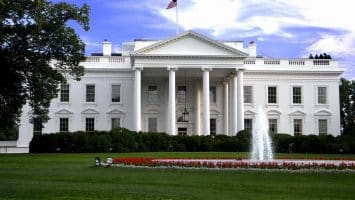on the crypto
The theme of a cryptocurrency regulation it is always on the agenda. The last to pronounce in order of time in this regard was Jeremy Allaire, founder and CEO of Circle, the well-known application that allows you to transfer money anywhere in the world without having to pay commissions. His post, published on May 20 on the company's official blog, is very interesting, precisely because it arrives in the aftermath of the decision taken by Poloniex, the well-known exchange that moves in the orbit of Circle Internet Financial, of remove nine coins from the list of those available to North American customers.
What did Allaire say?
Allaire's post starts from the statement that digital assets represent a new class of financial instruments and as such they should not be considered as security, goods or currencies. A statement of no small account if you think that SEC (Securities and Exchange Commission), or the authority called to supervise and regulate financial transactions in the United States in practice it is forced to develop its guidelines on virtual currencies, labeling them as security.
In practice according to Allaire the current laws, precisely because they start from a busted premise, would not be able to adequately address the issue of digital assets, when instead regulation would be necessary to give security to investors and markets.
A very controversial topic
The statements of Allaire are naturally intended to raise an issue that continues to remain in the background, namely that of relations between a sector born to decentralize the banking and financial system and not only monetary but also political institutions.
A theme that has seen over the past few months many governments take a stand, often denoting obvious annoyance with the phenomenon of virtual uniforms, but also giving rise to openings of no small importance.
With regard to the latter, it is important to remember those of Russia and South Korea. In the first case it was Putin to order the imposition of rules that can promote the development of a digital economy by July XNUMXst of this year. This was stated in a document published on the government portal on the net Kremlin.ru, thus revealing an increasingly favorable orientation towards cryptocurrencies which has also been confirmed by Igor Yusufov, former energy minister, who in February had stated the intention of the State Duma to make an oil-based digital currency.
In the case of Seoul, however, it was a real change of perspective, if you think that the South Korea for a long time it has shown some discomfort towards cryptocurrencies.
In the second half of 2018, however, the Asian government began to move in concert with the local financial authorities in order to plan the approval of legislation aimed not only to legitimize cryptocurrencies and Blockchain technology in the country, but also to strictly oversee the entire industry.
China's opposition
On the contrary, the positions of the China, increasingly determined to ban cryptocurrency mining, considered too expensive from a purely energy point of view despite the low cost of electricity in the country.
This was stated recently by the South China Morning Post, according to which the notice would be the National Development and Reform Commission (NDRC), which considers mining not only unsafe, but also harmful to the environment and too expensive in terms of energy consumption.
A decision that could bring the giant of electronic equipment dedicated to mining to its knees Bitmain Technologies, which produces 70% of it globally, forcing him to move abroad together with his sisters. An event that analysts say could create new international financial balances.


